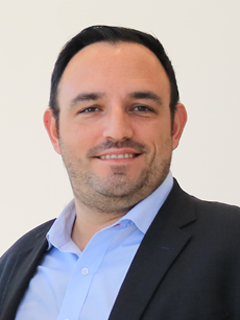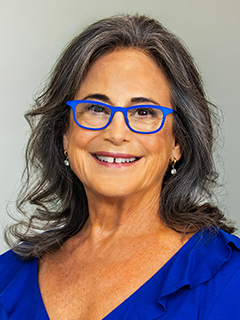HOW CAN WE HELP YOU? Call 1-800-TRY-CHOP
In This Section
CAR T Milestone, Young Innovator Award, AAN Living Legend, NSAIDs and C. difficile, Sexual Minority Youth

Major milestones lead this week's news roundup as Children's Hospital of Philadelphia treats its 500th patient with CAR T immunotherapy. A CHOP researcher is recognized as a "Young Innovator" in airway disorder research. A new study is among the first to understand the relationship between C. difficile and nonsteroidal anti-inflammatory drugs. And new data illustrates how stigmas affect mental health in sexual minority youth.
CHOP Reaches Major Milestone for CAR T Therapy
In 2012, Emily Whitehead became the first pediatric patient to be treated with CAR T-cell immunotherapy. Now, CHOP marks a major milestone in pediatric cancer treatment, treating its 500th patient with this therapy. Developed at CHOP and Penn Medicine by Stephan Grupp, MD, PhD, and colleagues, this "living drug" uses the patient's own immune system by reengineering their T cells to attack proteins found on the surface of cancer cells, revolutionizing cancer treatments around the world.
"We have gone from treating the very first pediatric patient to treating hundreds of other children with cancer, many of whose lives have been saved by CAR T therapy," said Dr. Grupp, inaugural director of the Susan S. and Stephen P. Kelly Center for Cancer Immunotherapy at CHOP. "Thanks to the generous support of Steve and Susan Kelly, we have launched an entire center for cancer immunotherapy, which will allow us to expand and improve the use of these and other gene therapy treatments for hundreds more children."
When Whitehead enrolled in the first pediatric clinical trial for CAR T-cell therapy, she was the first pediatric patient to receive CAR T and the first patient of any age to receive it for acute lymphoblastic leukemia that was resistant to all available treatments. Her case encouraged the development of toxicity management protocols that now benefit as many as 20,000 patients who have received CAR T, hundreds of whom are now cancer free like Whitehead.
Read more about this milestone in this CHOP news release.
CHOP Researcher Named 'Young Innovator' for Airway Disorder Research
The official journal of the Biomedical Engineering Society (BMES), Cellular and Molecular Bioengineering, named Riccardo Gottardi, PhD, leader of the Bioengineering and Biomaterials (Bio2) lab at CHOP, a "Young Innovator of Cellular and Molecular Bioengineering."
"I am honored to be recognized by Cellular and Molecular Engineering for this exciting and notable award," Dr. Gottardi said. "We are hopeful that our airway innovation will show similar success in human trials, so that we can improve outcomes for intubated pediatric patients."
BMES recognized Dr. Gottardi for his research on subglottic stenosis, which occurs when the airway narrows due to an accumulation of scar tissue, usually during intubation when bacteria build up and cause chronic inflammation. The condition requires invasive surgery that is especially risky in pediatric patients. Dr. Gottardi's lab has investigated modulating the endotracheal microbiome through the use of antimicrobial peptides to destabilize bacterial membranes and reduce inflammation.
Awardees are invited to present their papers at the BMES Annual Meeting. Authors who hold the rank of assistant professor or the equivalent are eligible to be nominated for the award.
Read more about Dr. Gottardi's research in this CHOP news release.
American Academy of Nursing Honors CHOP Nurse Leader as Living Legend
The American Academy of Nursing designated nurse leader Martha A.Q. Curley, RN, PhD, FAAN, as a Living Legend, to be honored at the Academy's annual Health Policy Conference Oct. 5-7 along with five other individuals who exemplify resolve and ingenuity in generating policy change through innovation, science, and leadership.
Dr. Curley serves as the Ruth M. Colket Endowed Chair in Pediatric Nursing Science at CHOP and is a professor of Nursing at the University of Pennsylvania School of Nursing. Dr. Curley's substantial accomplishments as an international leader in pediatric critical care research have transformed the delivery of care for critically ill children, forever elevating the scope of pediatric nursing and nursing science on a global scale.
The Academy annually selects exemplars of the profession to be recognized as Living Legends, their highest designation, for their outstanding contributions in improving health and advancing the nursing profession.
"This year's Living Legends have championed equity, diversity, and inclusion to collectively improve the public's health in America and around the world," said Academy President Kenneth R. White, PhD, RN, AGACNP, ACHPN, FACHE, FAAN.
Over several decades, Dr. Curley's studies have illuminated relationship-based care when partnering with parents of critically ill children, supported parent presence during invasive procedures and resuscitation, and have informed the practice of caring for critically ill pediatric patients with acute respiratory failure.
Read more in the AAN press release.
Researchers Reveal Link Between NSAIDs and C. difficile Infection Severity
A study published in Science Advances indicates that nonsteroidal anti-inflammatory drugs (NSAIDs) exacerbate gastrointestinal infections caused by Clostridioides difficile, the leading cause of antibiotic-associated diarrhea worldwide, by disrupting the mitochondria of cells lining the colon, sensitizing them to damage by pathogenic toxins.
"Our work further demonstrates the clinical importance of NSAIDs in patients with C. difficile infection and sheds light on why the combination of these two may be so detrimental," said senior author Joseph Zackular, PhD, assistant professor of Pathology and Laboratory Medicine. "Our mechanistic findings are a starting point for further research that aims to understand the impact of mitochondrial functions during C. difficile infection."
Prior studies have shown that NSAIDs such as indomethacin, aspirin, and naproxen negatively affect the gut, possibly due to the effects of NSAIDs on cyclooxygenase enzymes — a process that helps reduce inflammation and pain but also impairs mucosal function in the upper gastrointestinal tract. NSAIDs also have off-target effects and have been shown to affect cellular mitochondria by uncoupling cellular mitochondrial functions, which until recently, have not been explored in relation to C. difficile infection.
To better understand these off-target effects, researchers worked with in vitro and animal models of C. difficile infection to test how permeable colonic epithelial cells are in the presence of the NSAID indomethacin. Both indomethacin and C. difficile toxins increased epithelial cell barrier permeability and inflammatory cell death, and when combined, increased the disease severity through damage to colonic epithelial cell mitochondria and disruption of several important mitochondrial functions.
Learn more about the study in this CHOP news release.
Interpersonal and Structural Stigmas Increase Suicide Risk for Sexual Minority Youth
A new study conducted by researchers from CHOP and the University of Pennsylvania analyzed structural stigma — societal level conditions, cultural norms, and policies affecting opportunities and wellbeing of the LGBTQ+ community — to better understand how it affects the mental health of lesbian, gay, and bisexual (LGB) youth.
"Our findings provide us with evidence that we need to develop interventions targeted at reducing discrimination to help reduce the risk of youth suicide among those in a sexual minority," said Ran Barzilay, MD, PhD, psychiatrist in the Lifespan Brain Institute and senior study author. "Additionally, parents, educators and clinicians working with young adolescents should be aware of the increased mental health burden of LGB youth, especially in areas with higher degrees of structural stigma."
The study team analyzed data from the Adolescent Brain and Cognitive Development Study, in which more than 11,000 adolescents from across the United States were followed between the ages of approximately 10 to 13 years old. Researchers found that 29.5% of those in a "sexual minority" who identified as gay, lesbian, or bisexual faced interpersonal discrimination based on their sexual orientation in the past 12 months, more than six times as much as 4.6% of those who identified as heterosexual. Those in the sexual minority group were more than twice as likely to report having thoughts of suicide compared to their heterosexual peers (38.2% vs. 15.1%) and almost four times as likely to attempt suicide (9.2% vs. 2.4%).
The study appeared in Journal of the American Academy of Child and Adolescent Psychiatry. Learn more in this CHOP news release.
ICYMI
Catch up on our headlines from our June 9 In the News:
- CHOP Receives $1 Million From Pediatric Cancer Foundation for Phase 1 Clinical
- Fight Osteosarcoma Together Super Grant Funds Osteosarcoma Research at CHOP
- CHOP Hosts Successful Third Annual Lymphatic Disorder Conference
- At Cellicon Valley '23, CHOP Experts Imagine the Future of Cell and Gene Therapies
- American Epilepsy Society Funds Early Career Research for CHOP Scientist
- New Study Analyzes Caregiver Attitudes Toward Pediatric Vehicular Heatstroke
Keep up with our news, stories, and updates in real time by following us on Twitter, LinkedIn, or Instagram. Meet the minds behind the science in the Bench to Bedside podcast. Or subscribe to our newsletter to receive an email sent every other Friday by signing up here.







